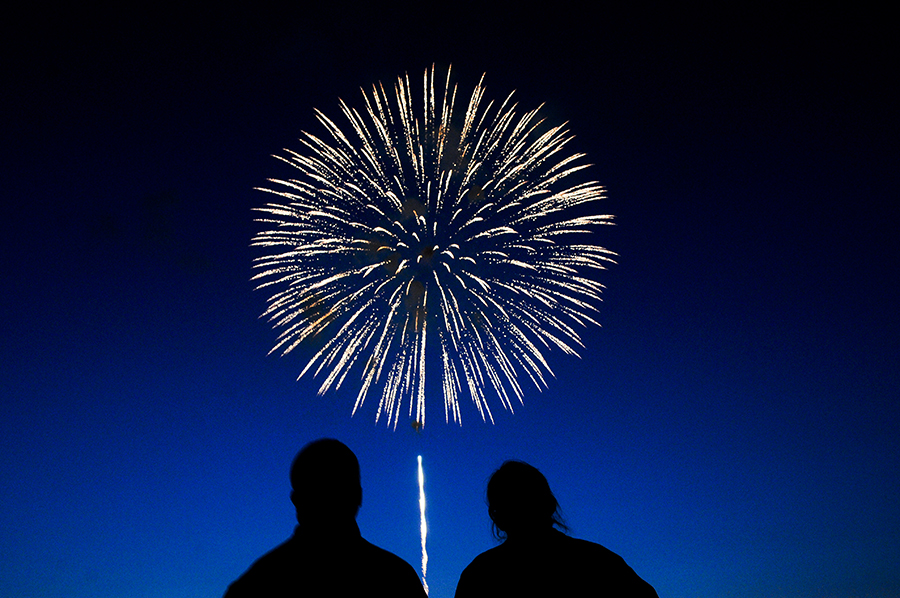Flathead County will consider banning fireworks within the county boundaries on Thursday on the heels of two other counties, Lincoln and Missoula, prohibiting any projectiles on public and private lands.
Commissioner Phil Mitchell said the county commission would vote on the fireworks issue with a resolution this week, after a conference call with other counties, agencies, and fire managers.
Mitchell said he would be for such a ban, though it would present enforcement challenges.
“The fire (departments) and police can only do so much,” he said.
[This post was updated to include new information that the commissioners’ meeting is scheduled for Thursday, July 2, at 9:15 a.m., instead of Wednesday as originally stated by Mitchell.]
The Whitefish City Council will meet at 9 a.m. on July 1 to consider enacting an emergency ordinance banning the discharge of fireworks within city limits for up to 90 days.
The professionally run fireworks display at City Beach on the Fourth will likely have an exception, according to city manager Chuck Stearns, given that the show is held over water and the fire department is on hand.
On Tuesday afternoon, the Lincoln County Commission passed a resolution prohibiting the use of fireworks outside of Libby, Troy and Eureka. Missoula similarly announced a ban. Lake County also banned fireworks as of June 30.
Lincoln Chute, the Flathead County’s fire warden and fire service area manager, said the area will be in Stage 1 fire restrictions starting at 12:01 a.m. on Friday, July 3, which mean campfires are prohibited except in designated areas, like fire rings at developed campgrounds.
Anyone going camping for the Fourth of July weekend should check in with the state and national forests for a list of which campgrounds will allow fires, he said.
Stage 1 restrictions also prohibit fireworks in all timber areas. The Stage 1 restrictions affect Flathead, Lake, Lincoln, and Sanders counties, state land within these counties and the Flathead National Forest, Kootenai National Forest, and Glacier National Park.
The restrictions are necessary due to the dry, hot weather so far this summer, Chute said.
“Right now we’re at levels that we typically see in a bad fire season in late August,” he said. “We’re literally seeing historic times. We’ve had the driest ever May and June, and then a low snowpack and an early melt off.”
Fire danger in Flathead County was bumped to Very High on June 30, he said.
“The speed that the fires are getting large is really surprising even people in the fire business,” Chute said.
To give an example of how dry the forests are, Chute said the dead material in the woods have about 10 percent moisture. A kiln-dried 2-by-4 stud has 19 percent moisture, and a kitchen table – which sits inside and is sealed – has about 4 percent moisture.
“The dead material is between those two in dryness,” Chute said.
The probability of ignition, meaning how likely it would be for a spark flying through the air to ignite the ground it lands on, is also high, because the area’s grasses have dried out. If 100 sparks flew into the air, about 90 of them would ignite.
“That’s the concern with the fireworks,” he said.
While it’s not a guarantee that these conditions will lead to massive wildfires – such disasters were avoided in 2000 when these conditions were present – Chute said public help will be key in avoiding such outcomes.
The goal is to keep people and the land safe, he said.
“This year, if you’ve bought some (fireworks) already, save them up for New Year’s Eve and have a big bash. Hit the lake side and go to a professional show instead of lighting your own,” Chute said.
He also said the haze visible in the valley is largely due to fires in Washington and Oregon.
